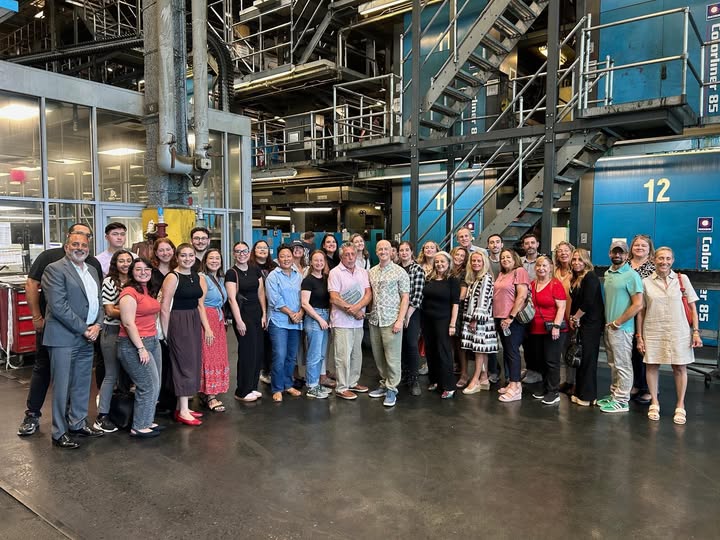Knowing ‘No’
At the start of my current internship, I was a complete amateur. I doubted myself, my abilities, and the idea of corporate marketing as a whole. How could I lead a business unit when I didn’t fully understand the company’s business model, let alone marketing?
My name is Alexandria, and I’m a senior ad major with a dual-track in account management and media planning. Currently, I serve as a marketing coordinator at EXL, a digital intelligence corporation based out of NYC.
Though I have been with the company for 7 months, it still feels like I’m crawling over that learning curve. In regards to acclimating to my role, I can’t say it happened overnight. I didn’t post on LinkedIn or tell anyone about my position for nearly a month. During those first four weeks, my evenings were spent studying flashcards, while I awoke most nights from nightmares of reporting incorrect figures. Basically, I convinced myself I was going to be fired for incompetence.
Spoiler alert: they didn’t cut me. As their first-ever intern for the business unit, they didn’t have many expectations. They simply wanted someone who showed up and was willing to learn. I checked those boxes, and then some. I spent my weekends preparing reports and my nights organizing emails, only to be told not to work off the clock. I think it goes without saying that I didn’t understand what a work-life balance was, and honestly, I’m still learning. With that said, I picked up a bit along the way, which I have broken down into two key points for anyone like me who struggles with setting boundaries in the workplace.
- Know when to say no (to others)
It’s hard to set boundaries when you’re the newbie. We often think we don’t have any authority, and shouldn’t open our mouths in the chance that we will face repercussions. This might come as a shock, but that is entirely false. People respect you for having an opinion, and often times respect you more for knowing your limits. It’s ok to say no to a new project if you’re already juggling five. Remember – quality over quantity. Your boss would rather see one detailed report than several sloppy ones. Setting boundaries allows you to reach your highest potential, which benefits your team as a whole.
- Know when to say no (to yourself)
Once you’ve accepted you’re worthy, heck, even good at your role, you’ve only just begun. When we gain confidence, we push ourselves to perform at a higher level all the time. We check our emails after getting home from work and start the week on Sunday night. Corporate America has a reputation of being cutthroat; often as competition rises, boundaries decrease. If I can leave you with a single take away – don’t fall victim to the pressure. If you’re off the clock, embrace it – like, get off your email and practice a little TLC.
To summarize my spiel – in a work environment, you need to know your limits, not test them. Be gentle with yourself, and know when to say no.



Loved reading this because I can relate so well to it. I feel like many interns can often feel the need to be available 24/7 and agree to as many projects as possible to prove to their bosses that they are ready to learn and help out. Learning to separate work from life can be hard but it’s crucial so we don’t burn out so early into our careers!
This is a great post! I think setting boundaries is one of the most important parts of having a healthy professional life, and I think we as young professionals forget that because we’re so focused on making a good impression. This is advice a lot of people should take with them wherever they end up!
What a great read, and with valuable advice. Although simple, “no,” is a crucial word in our vocabulary that we have an absurdly difficult time voicing.
I like your point about feeling like you need to know things as an intern. We have to remind ourselves that we are an “intern” for a reason. So, I googled the definition.
Internship: the position of a student or trainee who works in an organization, sometimes without pay, in order to gain work experience or satisfy requirements for a qualification.
We are students. We are trainees. We are helping with (sometimes) redundant work (sometimes) grunt work, sometimes we are handed a job that the paid employee beside us doesn’t have time to complete that day. We do this in exchange for eavesdropping on the daily office happenings and peaking to see what the Account Managers have on their agenda for the day. Somehow there is this expectation we subconsciously create for ourselves that we should know the proper way to execute the tasks we are assigned, but it is okay, no, it is good to ask why, to ask how, and to say no.
Thanks Alexandria.